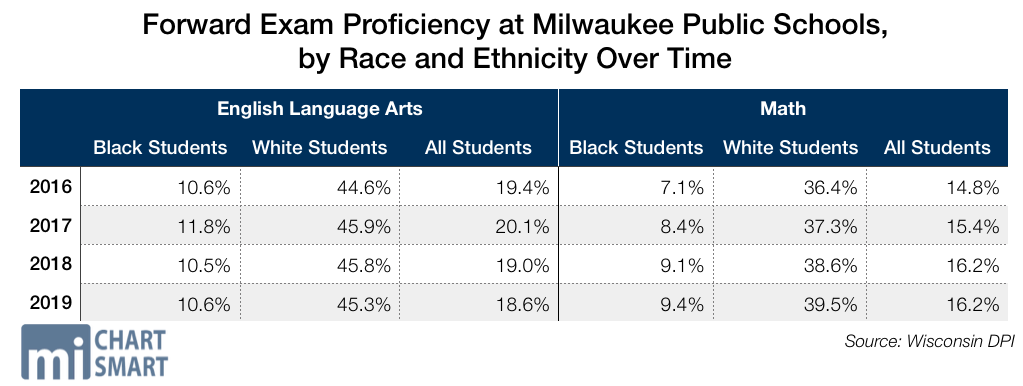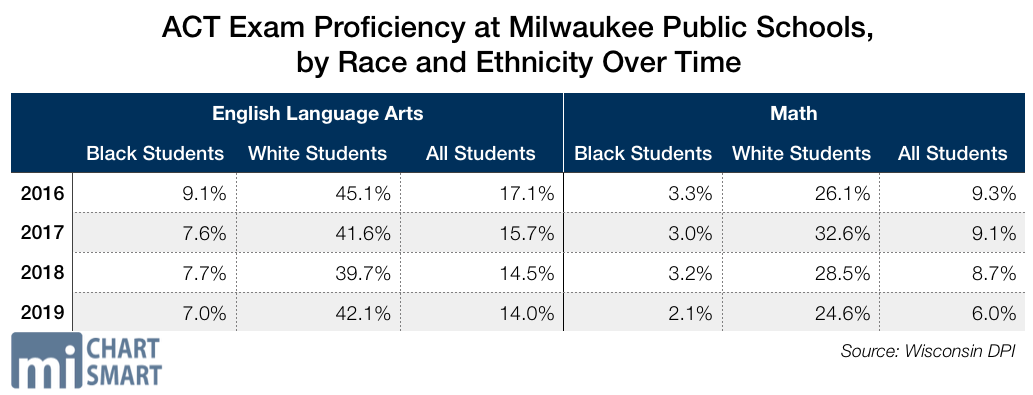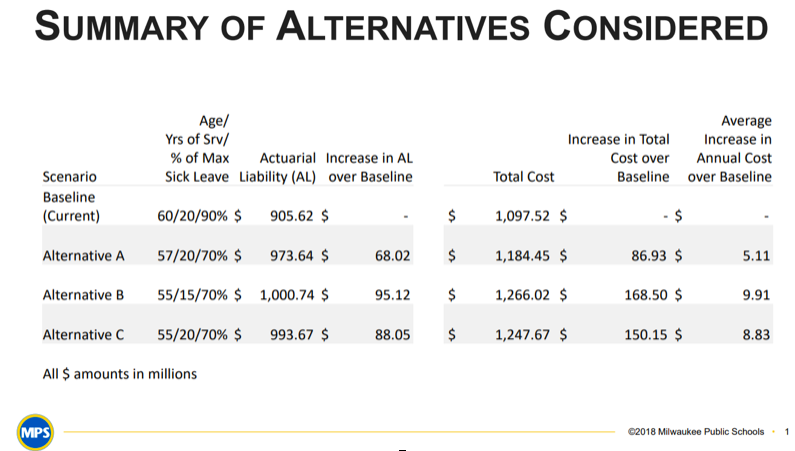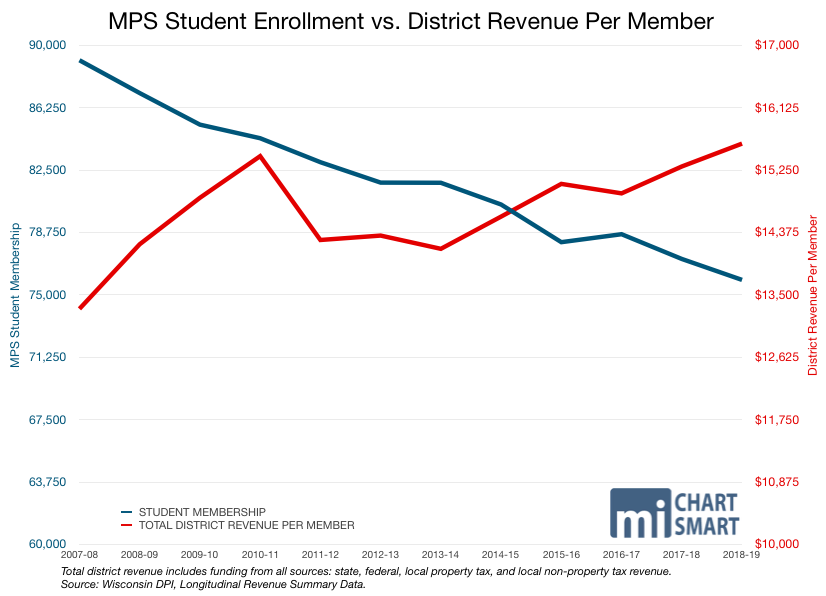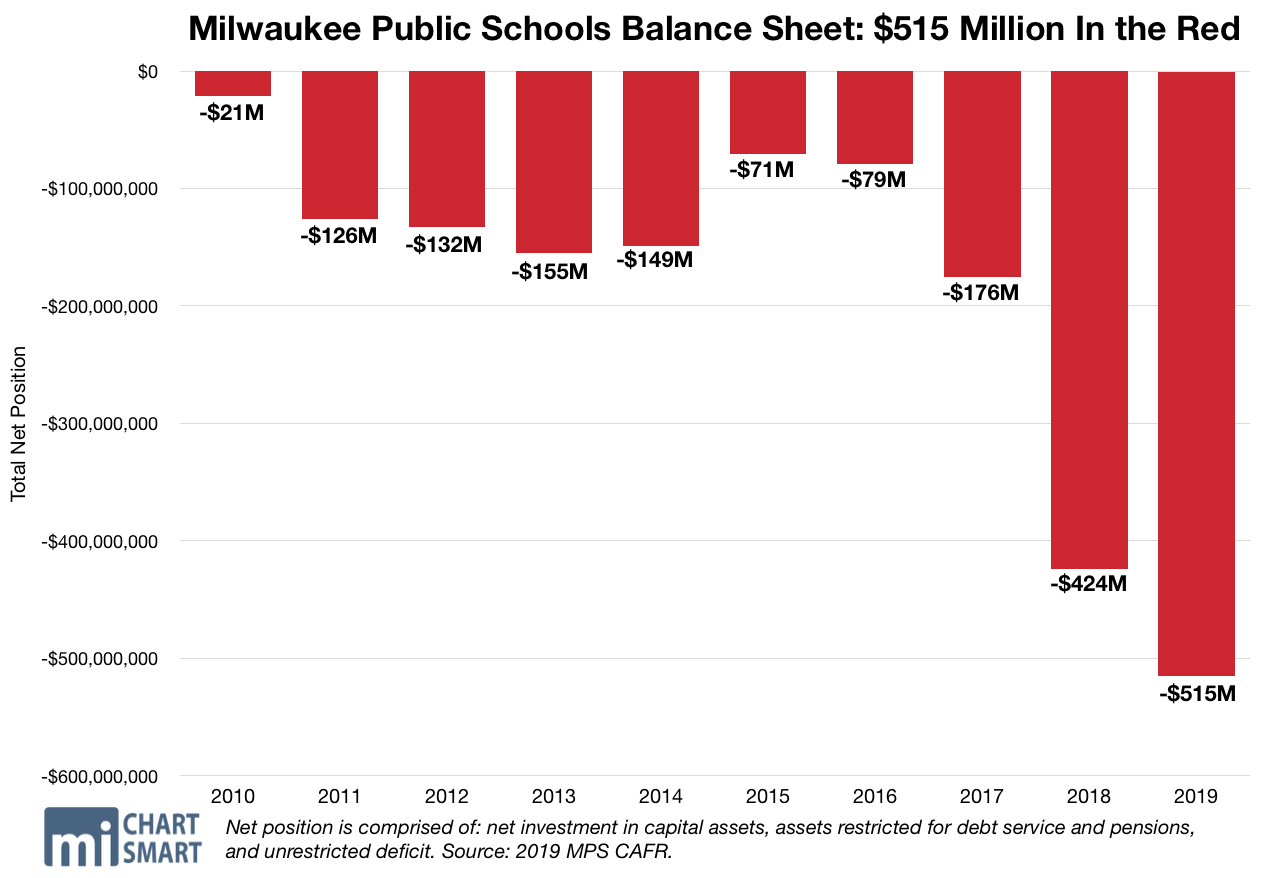
“We’re prioritizing the fact that a promise was made”
May 29, 2020
By Ola Lisowski
The Milwaukee Public Schools (MPS) Board of School Directors approved its $1.22 billion budget for 2020-21 early Friday morning after a nearly nine-hour meeting. The unanimous vote came at almost 4am, following numerous amendments spending at least $11 million more than the original proposal.
The board also approved an expansion to employee retirement benefits, effective July 1 of this year. Employees hired before June 30, 2013 will be eligible for taxpayer-subsidized retirement benefits at age 55, after 20 years of service to the district, and at least 70 percent of banked sick leave.
The change will increase spending by $88 million overall and will increase the district’s unfunded pension liability to $994 million. The plan is described as Alternative C in fiscal documents.
The board rejected the slightly more expensive plan (Alternative B) forwarded by the Committee on Accountability, Finance, and Personnel, which would have allowed employees with 15 years of service to retire with board-subsidized benefits. That plan, which was in place before 2013, would have brought the district’s unfunded liabilities to more than $1 billion.
Explaining his vote, Board President Miller said that nine out of ten speakers at Tuesday’s public hearing noted how long they had worked for the district, each more than 20 years, “so this proposal does give them the opportunity that they need.”
Fiscal documents estimate the plan will not be fully funded until 2037.
The district’s main operations fund is facing a projected $304 million deficit, just three years into the future, in the 2023-24 fiscal year. The current fiscal year sees the district’s total balance sheet at a $515 million loss.
Still, the board pressed on with more spending, adding at least $11 million in amendments to an already-balanced budget that Superintendent Dr. Keith Posley said “we’re going to have to cut somewhere.”
The board considered a dozen amendments late Thursday and early Friday morning before voting on the final budget. Among those approved include the final phase of the district’s “Road to 15” plan. After January 2021, the district’s minimum wage will be $15 per hour for all employees.
The board also spent several hours debating and ultimately rejecting an administration busing proposal that would have saved the district $3 million.
Administration officials urged members to pass the proposal, which would shift schools to a three-tier start system, staggering schedules so that the district could make more bus trips with the same number of drivers. Citing the expected need for social distancing in the fall, supportive members said not allowing administration the flexibility to rearrange bus schedules would cause “chaos” and a “busing crisis.”
Still, the board ultimately rejected the idea on a 4-5 vote, citing a lack of community support for changing school start times.
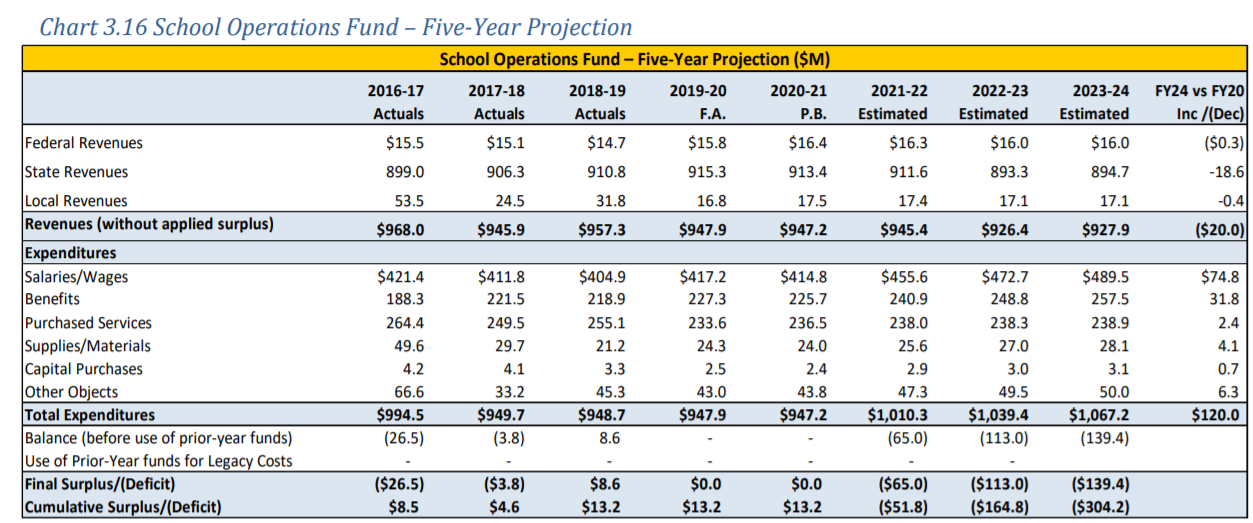 In 2017, the board created an “Early Retirement Window” (ERW) that allowed eligible employees to retire during a three-year time period that ends on June 30, 2020. On July 1, the program will end, and the age requirement for health and life insurance benefits will revert to age 60. The board established the MPS Pension and Retirement Task Force in 2019 to study the idea of extending the ERW or making another permanent change to the district’s retirement package.
In 2017, the board created an “Early Retirement Window” (ERW) that allowed eligible employees to retire during a three-year time period that ends on June 30, 2020. On July 1, the program will end, and the age requirement for health and life insurance benefits will revert to age 60. The board established the MPS Pension and Retirement Task Force in 2019 to study the idea of extending the ERW or making another permanent change to the district’s retirement package.
The MPS Pension and Retirement Task Force includes representatives from the Milwaukee Teachers’ Education Association (MTEA), the Psychologists Association in Milwaukee Public Schools (PAMPS), International Union of Operating Engineers (Local 420), administration officials from the Offices of Finance and Human Resources, MPS Board President Larry Miller, and Board Director Erika Siemsen.
The Task Force studied three main alternatives and ultimately chose Alternative B—the most expensive of the three—to recommend to the school board.
Speakers at task force meetings described the change as a “return to what the promise was before 2013,” and one that “corrects a wrong.”
Before board amendments, the full budget document would spend $2.8 million more than last year’s budget, despite steadily declining enrollment. The budget document projects enrollment for 2020-21 to be 74,966 students across 158 schools. District enrollment has fallen by more than 10,000 students in the last 10 years.
Totaling $947.2 million, the majority of spending is in the operation fund, which would see a $700,000 spending decline from the prior year. Another $55.2 million would go to the nutrition fund, a $300,000 increase over the prior year.
The construction fund would see the biggest increase in the proposal with an addition of $4 million, nearly tripling the current $2.6 million construction budget.
The budget will also spend the first $57 million of a $87 million referenda dollars voters approved in April. The district will be able to spend beyond property tax caps called revenue limits for four years under the plan.
The largest line item in the proposed referendum budget is $25.5 million in salary and benefits for attracting and retaining staff—spending the board approved before the referendum vote. During their meeting, the board redirected some of the referendum funds to amendment items, including one that would add 28.25 parent coordinator positions at a cost of $1.2 million.
